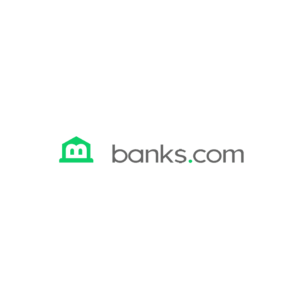Cashier’s checks and certified checks can be used to move funds between accounts or make purchases. Both types of checks are issued by banks or credit unions, but there are some key differences between the two to be aware of. Keep reading to discover how each one works, along with a viable alternative if you’d prefer not to use a cashier’s check or certified check to make payments.
What is a Cashier’s Check?
A cashier’s check is a check that’s guaranteed by your financial institution. It’s often a preferred method of payment for consumers looking to write a check to make a big-ticket purchase because of the security it provides. In addition, since the account holder is required to hand over the funds for the amount of the check before it’s issued, the likelihood of the check bouncing is slim to none.
What is a Certified Check?
A certified check doesn’t provide the same level of protection to the payee as a cashier’s check. Your financial institution will reference your account and perform a few extra tasks, like verifying your identity, confirming you have the funds available to cover the check, and putting them on hold before issuing the check. It’ll also come with the financial institution’s official watermark or stamp affixed to it. Still, it’s not as safe as a cashier’s check, as there’s a chance a replica can be created by a fraudster.
Cashier’s Check vs. Certified Check
If you’re trying to decide which type of check is best for your upcoming transaction – whether it’s a big-ticket purchase or funds transfer – here’s what to know about each to make an informed decision:
How Each One Works
Here’s a breakdown of how both types of checks work:
- Cashier’s check: When you request a cashier’s check, the bank withdraws the funds from your account and cuts the check. So, instead of the funds being pulled from your account when the payee presents the check to be chased, the bank handles the payment from its pool of funds. Furthermore, the payee’s name is listed on the check to ensure the check is used as intended.
- Certified check: Instead of the bank pulling the funds from your account, it will typically place a hold on the amount of the check and release the funds once the check is presented by the payee.
How Do You Get One
Both types of checks can be retrieved by visiting your bank or credit union. It’s also possible to submit an online request to have a check mailed to you if it’s a service offered by your financial institution.
Source of Funding
The funds for cashier’s checks and certified checks are drawn from your account. However, you’ll need to fork over the cash upfront when requesting a cashier’s check, and the bank will cut the check that you hand over to the payee. But with certified checks, the bank simply places a hold on the funds and you, the account holder, fund the check when it’s presented for payment.
Check Signature
As mentioned above, the bank or credit union signs cashier’s checks since they act as the payor. But the account holder signs certified checks, and the bank confirms the validity of the signature.
Fund Availability
The funds from cashier’s checks and certified checks are typically available the following business day.
Costs
Expect to pay between $10 and $20 for a cashier’s check, depending on the method of retrieval you select. Pick-up generally comes at a lower rate, but if you want the added convenience of having the check shipped to your home, expect to pay a premium for this service.
The cost of a certified check is usually between $2 and $15, but some financial institutions may waive the fee if you have a certain balance. Also, be mindful that there are banks and credit unions that do not offer certified checks.
Safety and Security
Cashier’s checks are safer than certified checks since they are guaranteed by the bank or credit union, compared to certified checks that leave the responsibility for payment in the account holder’s hands. Still, the latter provides an added layer of security if the financial institution allocates the funds until the check is cashed.
Guarantee
Cashier’s checks are guaranteed by the financial institution issuing the check. However, certified checks are guaranteed by the account holder.
What If You Lose It?
If you lose a cashier’s check or certified check, reach out to your bank or credit union promptly to notify them. You can also request a replacement, but you’ll likely have to jump through a few hoops to get this done, including purchasing an indemnity bond. But requesting a stop payment will not suffice. And unfortunately, there could also be a waiting period of up to 90 days before a replacement check can be issued.
When Should You Use Each
Both are a safer form of payment than a personal check when handing over large sums of funds for transactions, like the down payment on a house, car or buying an expensive item. But as mentioned above, cashier’s checks are more secure and much more challenging to fake compared to certified checks.
Cashier’s Check vs. Certified Check: Which Is Better?
A cashier’s check is the safer option when making a large purchase and is often accepted by sellers as a form of payment. Compared to a certified check, it provides added reassurance that there won’t be issues with the funds since the check is guaranteed by the bank or credit union.







